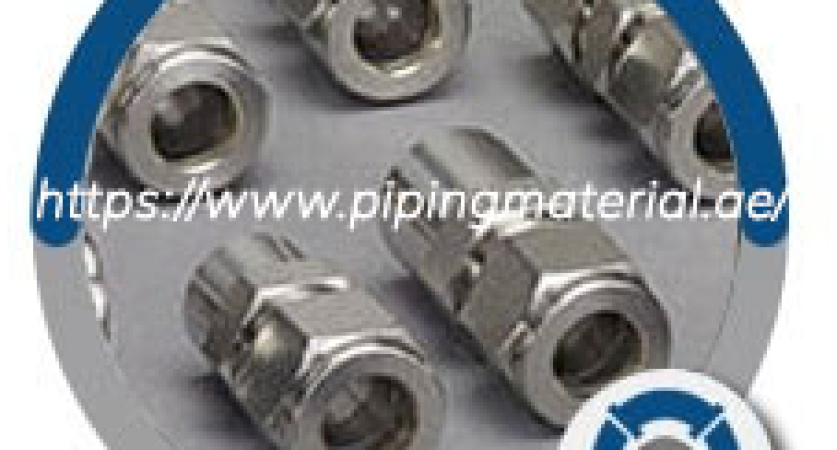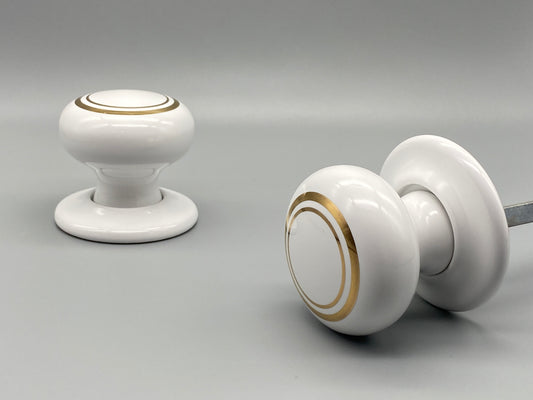Stainless steel tube fittings

Stainless steel tube fittings are a critical component in many industrial and commercial piping systems. They are used to join sections of stainless-steel tubing to create a leak-tight and corrosion-resistant connection. These fittings are highly valued for their durability, strength, and versatility, and are commonly used in applications such as chemical and pharmaceutical plants, power plants, and oil and gas installations. In this article, we will explore the different types of stainless steel tube fittings, their grades, and their uses, as well as provide information on tightening compression fittings and the use of Teflon on stainless steel compression fittings. We will also introduce Stainless Steel 904L Tube Fittings, which are known for their exceptional resistance to pitting and crevice corrosion, and provide a list of top stainless steel tube fittings suppliers.
What are Stainless steel tube fittings?
Stainless steel tube fittings are connectors used to join sections of stainless-steel tubing in a piping system. They come in a variety of shapes and sizes to accommodate different piping configurations and are used to create leak-tight connections in a range of applications, from simple plumbing systems to complex industrial processes.
The most common types of stainless-steel tube fittings include elbows, tees, crosses, couplings, reducers, and unions. These fittings are typically made from stainless steel, which is a corrosion-resistant material that provides high strength and durability.
Stainless steel tube fittings are widely used in various industries, including chemical and pharmaceutical manufacturing, oil and gas exploration, power generation, and water treatment. Their ability to withstand harsh environmental conditions, such as exposure to corrosive chemicals and high temperatures, makes them an ideal choice for these applications.
In addition to their durability and corrosion resistance, stainless steel tube fittings also offer a high degree of versatility. They can be used in a variety of piping configurations, from simple runs to complex networks, and can be easily assembled and disassembled, making them ideal for maintenance and repair work.
Overall, stainless steel tube fittings play a critical role in ensuring the performance and longevity of piping systems in a range of applications. Their high quality, versatility, and durability make them a valuable investment for any industry that requires a leak-tight, corrosion-resistant connection.
What are the common grades of instrumentation tube fittings?
There are several grades of stainless steel used in instrumentation tube fittings, each with different properties and benefits. Some of the most common grades include:
304 and 304L: These are the most widely used grades of stainless steel, known for their excellent corrosion resistance, good formability, and ease of fabrication.
316 and 316L: These grades offer improved resistance to pitting and crevice corrosion and are commonly used in harsh chemical and high-temperature applications.
321: This grade is highly resistant to intergranular corrosion and is often used in high-temperature applications, such as furnaces and heat exchanger tubing.
904L: This grade has a higher resistance to pitting and crevice corrosion compared to other stainless-steel grades, making it an excellent choice for use in harsh chemical environments.
Stainless steel 904L tube fittings are made from grade 904L stainless steel, which offers improved resistance to pitting and crevice corrosion compared to other stainless-steel grades. These fittings are commonly used in harsh chemical environments and can provide excellent durability and performance in a variety of applications.
How tight do you tighten a compression fitting?
The tightness of a compression fitting is important to ensure a leak-tight connection. The fitting consists of a nut, a ferrule, and a body, and the tightness is achieved by compressing the ferrule onto the tubing.
To tighten a compression fitting, the following steps should be followed:
- Clean the tubing: Clean the end of the tubing to be inserted into the compression fitting to remove any debris or residue.
- Insert the tubing: Insert the tubing into the body of the compression fitting until it reaches the stop.
- Add the ferrule: Place the ferrule onto the tubing, making sure that it covers the end of the tubing completely.
- Tighten the nut: Thread the nut onto the body of the compression fitting, tightening it by hand until it is snug.
- Use a wrench: Use a wrench to tighten the nut further, following the manufacturer’s specifications. The amount of torque applied will depend on the size of the fitting and the type of tubing being used.
- Check the fitting: Check the fitting for leaks by applying a small amount of pressure to the system.
It is important to not over-tighten the compression fitting, as this can cause the ferrule to crush the tubing and create a weak point that can lead to leaks. On the other hand, under-tightening can result in a leaky connection.
In summary, the tightness of a compression fitting should be sufficient to compress the ferrule onto the tubing and create a leak-tight connection, but not so tight that it damages the tubing or creates a weak point. It is always best to follow the manufacturer’s specifications for tightening to ensure the proper installation and long-term performance of the fitting.
Should I use Teflon on the ss compression fitting?
Teflon tape is commonly used on threaded fittings to ensure a leak-tight seal and prevent corrosion, but it is not typically used on compression fittings. Compression fittings rely on the compression of a ferrule onto the tubing to create a leak-tight seal, and the use of Teflon tape could interfere with this process.
There are many stainlesssteel tube fittings suppliers, ranging from local manufacturers to global companies. When selecting a supplier, it is important to consider factors such as product quality, availability, price, and delivery time.
In conclusion, stainless steel tube fittings are an essential component in many industrial and commercial piping systems. They provide a durable, leak-tight, and corrosion-resistant connection that is critical to the performance and longevity of the piping system. When installing stainless steel tube fittings, it is important to follow the manufacturer’s instructions and guidelines for tightening compression fittings to ensure a secure and leak-free connection.
- SHARES

Ashmawi Sami has a Bachelor degree in Travel and Tourism Management from the University of Minnesota. He has his own travel vlogging channel. Besides being a fantastic yoga instructor he has travelled to 9 countries and planning his next trip soon. As the father of 3 dogs, he is well-trained in parenting, crowd control, and crisis situations.
ABOUT ME

Gillian is a freelance blogger, student, and full-time traveler. Each day she spends her time exploring something exciting to help people find the information they need while travelling to a new destination. Whether it be the place to enjoy holidays, or a spot to throw a party or hidden gems that you must visit in the city.
ALL CATEGORIES
- Adventure (13)
- Automotive (8)
- Business (662)
- Education (13)
- Event (4)
- Health (285)
- Insurance (11)
- Lifestyle (12)
- News (1)
- Real Estate (19)
- Shopping (26)
- Technology (20)
- Travel (6)

JOIN US TODAY
POPULAR POST
January 27, 2021 -
Adventure Travel For The Audacious Spirit
January 27, 2021 -
Small Business Loans for Women
January 27, 2021 -
Adventure Tours in Vanuatu
RECENT POST
July 20, 2024 -
Discovering Kelowna’s Best Boat Rental and Yacht Charter Services
Nestled in the heart of British Columbia's Okanagan...
July 20, 2024 -
What are the advantages of the best infant car seat stroller combo?
When it comes to convenience and safety for...
July 19, 2024 -
Transforming Your Space with Timeless Brass Hardware
Brass hardware has long been celebrated for...
July 19, 2024 -
The Ultimate Guide to Curtain Making Accessories: Transform Your Space with the Right Tools
Creating the perfect set of curtains involves more...















